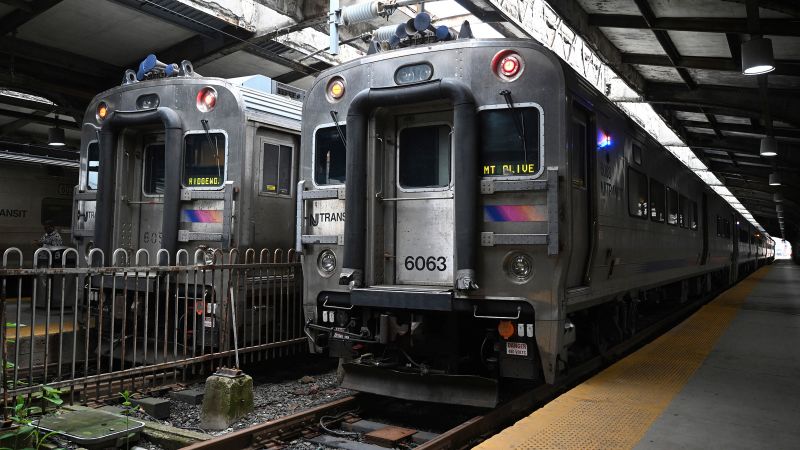On early Friday morning, engineers at New Jersey Transit initiated a strike, effectively halting operations on what stands as the nation’s third-largest commuter rail service. This sudden work stoppage followed a failure in negotiations, which unfolded on the eve of the strike, between the publicly funded commuter rail service and the Brotherhood of Locomotive Engineers and Trainmen (BLET). Attempts to broker an agreement during the final day of talks culminated in disappointment as both parties could not find common ground, leaving hundreds of thousands of commuters stranded.
The ramifications of this strike are not just limited to the 100,000 daily rail passengers relying on NJ Transit; businesses across the sprawling New York metropolitan area will also feel the effects. Additionally, fans of celebrated artists Shakira and Beyoncé may encounter significant difficulties attending their highly anticipated concerts at MetLife Stadium, located just outside of Manhattan. These events pose a potential disaster for concertgoers, given the strike’s timing and its coinciding with major entertainment events in the region.
As reported, negotiations ceased shortly before 10 p.m. ET on Thursday evening. NJ Transit CEO Kris Kolluri, along with New Jersey Governor Phil Murphy, addressed the media late Thursday to discuss the situation. Kolluri remarked that the parties had come close to an agreement; however, differences persisted, particularly over wage structures deemed affordable by state officials and NJ Transit management. While both parties aimed for a mutually beneficial solution, Kolluri emphasized the intention to reconvene negotiations by Sunday morning, expressing a willingness to engage with the union should they be open to commencing talks sooner.
In his address, Kolluri, alongside Murphy, reiterated their desire for fairness toward the union members but maintained that demands from the union should not threaten the financial health of the railroad. Previously proposed labor agreements were met with rejection by 87% of union members, who voiced discontent over offers they felt were inadequate, particularly when compared to industry pay standards at Amtrak and nearby commuter lines.
BLET National President Mark Wallace criticized NJ Transit’s financial decision-making, citing substantial expenditures on lavish headquarters and internal decor while dismissing the appeal for fair wages for workers. He declared a commitment to maintain the strike until their members are compensated fairly, illustrating a growing frustration among the union representatives.
In a bid to mitigate the fallout from the strike, NJ Transit officials proactively increased bus services; however, their capacity was described as “extremely limited.” NJ Transit and Murphy recommended that commuters explore alternative transportation options or consider working from home if possible. Commuters were urged to limit their travels across the remaining transit system to only essential purposes, as the probability of traffic congestion surging remained high amidst the disruption.
As Moody’s and congestion pricing loom larger for commuters heading into Manhattan, toll costs are projected to skyrocket, with additional charges reaching up to $9 on top of existing bridge and tunnel fees. This situation will not only affect daily commuters but will also severely impact concert attendees traveling to significant events at MetLife Stadium, such as Shakira’s Friday night performance and Beyoncé’s series of shows commencing the following week.
Additionally, NJ Transit opted to cancel any special rail services that had been planned for concerts in anticipation of the strike, recognizing the likelihood of challenges fans would face returning home if they utilized train travel. Those driving their vehicles to the events could encounter substantial traffic delays as crowds once reliant on rail services now navigate the roadways.
With the stakes high, the union has strongly advocated for increased wages to align with competitive pay in the rail industry, emphasizing the significance of maintaining operational services alongside their demands. Thomas Haas, the general chairman representing the 450 engineers, articulated the collective sentiment of the union members, stating their desire for fair and competitive compensation as they confront the last resort of striking to secure their financial futures.
In conclusion, this ongoing strike at NJ Transit illustrates a complex interplay of labor rights, financial accountability, and public inconvenience. As discussions continue and the situation evolves, the implications for commuters, local businesses, and the regional transport landscape remain a pressing concern for those affected. The strike highlights not merely the immediate disruptions but also broader systemic issues within public transit labor relations that will undoubtedly come under scrutiny in the days ahead.



